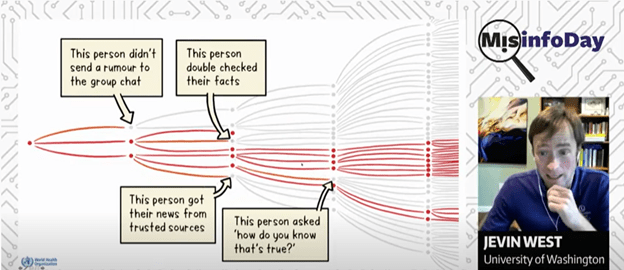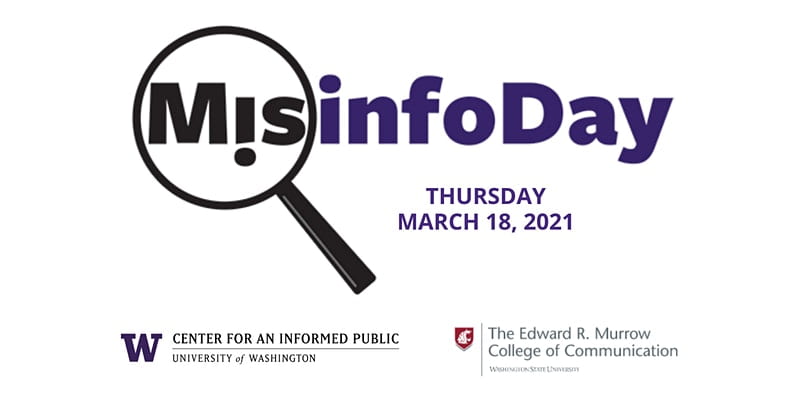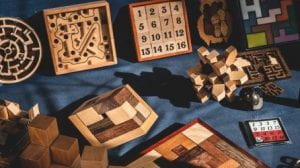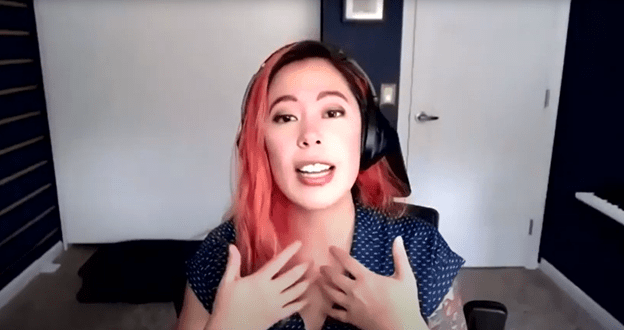This is a web version of the Center for an Informed Public’s News & Insights newsletter for March 2021, which was sent out on Feb. 31. Check out our newsletter archives. Not signed up to received the CIP’s newsletter? Register here.
Important lessons from MisinfoDay 2021
More than 1,000 middle and high school students, teachers and educators from across Washington state and the nation participated in MisinfoDay 2021, a series of workshops presented on March 18 by the University of Washington‘s Center for an Informed Public in partnership with Washington State University‘s Edward R. Murrow College of Communication. Facilitators explored strategies for spotting misinformation, fact-checking claims and sources and better understanding the landscape of information disorder and the goals and tactics of those who create and spread disinformation. While each workshop is chock-full of valuable lessons and insights, here are a few key highlights.
- INSIGHTS: TVW “Inside Olympia” interview features CIP’s Kate Starbird. // WATCH
- EDUCATION: A Misinformation Escape Room takes shape. // LEARN MORE
CIP researchers share findings from ‘The Long Fuse: Misinformation and the 2020 Election’ final report
On March 3, researchers from the Center for an Informed Public, Stanford Internet Observatory, Graphika and The Atlantic Council‘s DFRLab gathered for a virtual event to present key findings from “The Long Fuse: Misinformation and the 2020 Election,” the final report from the nonpartisan Election Integrity Partnership, a research collaboration involving approximately 120 people who came together last summer ahead of the 2020 U.S. elections to identify, track and analyze emerging voting-related mis- and disinformation.
“The Long Fuse” final report saw attention from news organizations like KUOW Public Radio in Seattle, The New York Times, The Washington Post, The Associated Press and the UW Daily.
In a deep-dive exploration of the EIP’s final report, tech journalist Casey Newton, for his Platformer newsletter and The Verge, focused on report findings about YouTube, featuring insights shared by CIP co-founder and UW HCDE associate professor Kate Starbird and UW School of Law student and research analyst Nicole Buckley. Before, during and after the election, YouTube “was kind of a place for misinformation to hide and be remobilized later,” Starbird said in response to a question from Newton during the virtual event. “From our view, it was a core piece of the repeat spreading phenomenon, and a huge piece of the cross-platform spread.”
- DOWNLOAD: “The Long Fuse: Misinformation and the 2020 Election“
- WATCH: A 90-minute virtual presentation and Q&A about the EIP’s final report.
- INSIGHTS: In an article in The Atlantic about how “most false propaganda about voting came almost exclusively from the right” during the 2020 U.S. elections, Renee DiResta of Stanford Internet Observatory cited EIP research contributed by the Center for an Informed Public that found that “21 prominent influencers, including the actor James Woods, Donald Trump Jr., a couple of QAnon leaders, and former President Trump himself, had each amplified misinformation about at least 10 incidents.”
RESEARCH NOTES
The ‘vaccine passport’ narrative in vaccine hesitant communities
A group of researchers affiliated with the Center for an Informed Public — CIP postdoctoral fellows Rachel E. Moran and Kolina Koltai, UW School of Law student Nicole Buckley, iSchool graduate student Divya Suresh Kumar and undergraduate research assistants Joseph Schafer and Connor Klentschy — published “The Vaccine Passport Narrative in Vaccine Hesitant Communities,” a blog post from the Virality Project, a COVID-19 vaccine misinformation research collaboration from the CIP, Stanford Internet Observatory, Graphika and other partners.
- UW Information School PhD student Prerna Juneja and iSchool assistant professor Tanu Mitra have been given a CHI 2021 Best Paper Honorable Mention for “Auditing E-Commerce Platforms for Algorithmically Curated Vaccine Misinformation,” which examines how vaccine misinformation has been amplified by Amazon’s algorithms. Their forthcoming paper has been previously featured in The Seattle Times and Spokesman Review.
- During a Science Talk 2021 subsession discussion about the challenges of communicating with audiences about difficult topics or in difficult informational environments, CIP postdoctoral fellow Kolina Koltai explored bridging divides with anti-vaccine and anti-mask audiences.
- CIP faculty members Jevin West and Carl Bergstrom discussed their 2020 book, Calling Bullshit: The Art of Skepticism in a Data-Driven World in a virtual talk that was part of the Anthony B. Evnin Lecture Series at the Council on Science and Technology at Princeton University.
- Bergstrom, a UW Department of Biology professor, recently participated in a University of Southern California Annenberg Center for Health Journalism webinar, “Covering Coronavirus: Fighting the ‘Infodemic.’“
CIP IN THE NEWS
Center for an Informed Public researchers have been regularly interviewed, quoted or otherwise featured in various local, regional, national and international news outlets, livestreams and podcasts. Recent highlights include:
CIP postdoctoral fellow Kolina Koltai, who researches vaccine-related misinformation, was recently featured in articles by The Atlantic, The New Yorker, The New York Times and in interviews with BBC News and KING5 in Seattle. “Crisis often breeds conspiracies, and the extended nature of this public-health crisis has given conspiratorial people lots of time to build elaborate theories,” Koltai told Derek Thompson in his Atlantic article about the “constellation of motivations, insecurities, reasonable fears, and less reasonable conspiracy theories” that fuel vaccine refusal.
Koltai also contributed an article, “You can help prevent the spread of misinformation about COVID vaccines,” for the March edition of University of Washington Magazine.
- “Facebook created this engine of amplification. They know exactly how widely these posts can spread and why they should stand in the way,” CIP cofounder Ryan Calo, a UW School of Law professor, told New York Times editorial board member Greg Bensinger in an interview. [The New York Times]
- Calo was also interviewed by Stateline in an article about state governments developing COVID-19 contact-tracing apps. “I have yet to see any convincing evidence that they’re worth it,” he said. “A lot of money, a lot of attention, a lot of oxygen has gone into developing this app. That time and money should have been put other places.” [Stateline / Pew Charitable Trusts]
- CIP faculty members Carl Bergstrom, a UW Department of Biology professor, and Jevin West, an iSchool associate professor, were featured in a Grist video about debunking misinformation about climate change. [Grist]
- Melinda McClure Haughey, a UW Department of Human Centered Design & Engineering PhD student and CIP social media researcher, was quoted in a DefenseOne article looking at the spread of a false rumor claiming that President Biden invaded Syria, noting that tools like CrowdTangle used to track content on Facebook can’t measure spread in private groups. “We know that these private, more personal spaces are places where misinformation thrives,” McClure Haughey said. [DefenseOne]
- The Washington Post interviewed McClure Haughey about research on prominent right-leaning influencers who lost significant number of followers on Twitter when the platform closed numerous QAnon accounts in January. [The Washington Post]
- CIP postdoctoral fellow Rachel E. Moran was interviewed by the French newspaper Liberation for an article about QAnon conspiracy theorists. [Liberation]
- KNKX Public Radio in Tacoma interviewed Liz Crouse, a UW iSchool MLIS alum who helped organize MisinfoDay 2021 for the Center for an Informed Public, about the annual educational event for students, teachers and librarians. [KNKX]








